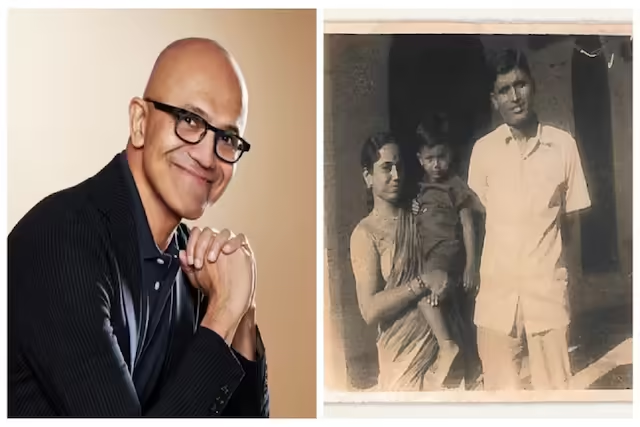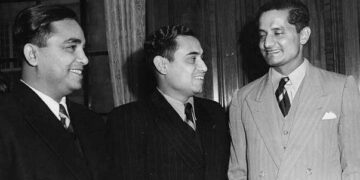Birendranath Sarkar (English: Birendranath Sarkar or Birendranath Sircar, born- 5 July, 1901; died- 28 November, 1980) was a famous Indian film producer and the founder of ‘New Theatres, Calcutta’. In the early thirties, he started a production company named ‘International Film Craft’. Under the banner of this company B. N. The government initially produced two silent films. B.A in the field of Arts. N. In view of his contribution to the government, he was honored with ‘Padma Bhushan’ by the Government of India in 1972. He was the second person to be given the ‘Dada Saheb Phalke Award’ (1970). A great person like him and a producer who laid a strong foundation have a huge contribution in the development of Indian cinema. Indian cinema will never be able to forget the contribution made by him.
B. N. The government was born in undivided Bengal under the leadership of Sir N. N. Government House was built in 1901. He was the second son of his father. The child was named Birendranath Sarkar. Birendranath’s father was the Advocate General of Bengal, and also a member of the Viceroy’s Council. When Birendranath grew up, he was sent to ‘London University’ so that he could study civil engineering.[1]
After returning to India, he started his business as a civil contractor and in this connection, while inspecting the building of a cinema hall, the seed of interest towards cinema was sown in him. This seed soon germinated and inspired him to do his great work. When his attraction towards cinema started growing like a plant, he built his own cinema hall in Calcutta and named it ‘Chitra’.
Chitra Cinema got a great fortune when it was inaugurated in December 1930 by Netaji Subhash Chandra Bose. Soon B. N. The government built another theater ‘New Cinema’ in Calcutta. But with the construction of only two cinema halls, B. N. The government’s inclination towards cinema was not completely satisfied. He became eager to play a bigger role in the field of cinema and this passion inspired him to start his own production company. In the early thirties, he started a production company named ‘International Film Craft’ and under this banner he initially produced two silent films. These films were- ‘Chasar Meye’ and ‘Chor Kanta’. In the same year, along with one of his friends, he also produced another silent film – ‘Bukar Bhoja’. With the advent of talking films in Indian cinema, in 1931 he built his own studio in Tollygunge and named it ‘New Theaters Limited’. His first talking film in Bengali language was produced in this studio. The name of this film was- ‘Dene Paona’.[1]
B. N. The government ran both its cinema halls in such a manner that Bengali films were shown in ‘Chitra’ and ‘New Cinema’ was reserved exclusively for showing Hindi films. B. N. Sarkar soon became a leading film producer of Bengal. He continued running the wheel of ‘New Theatres’ for almost twenty-five years and produced more than 150 films. He produced Hindi and Bengali as well as Tamil films. He made many films in both Bengali and Hindi languages. In such films K. l. The major ones are Devdas and ‘Street Singer’ starring Sehgal. In the Bengali version of Devdas, the lead role of ‘Devdas’ was played by the film’s director P.C. Barua himself and in the Hindi version this role was played by K. Played by L Sehgal. Of. l. Sehgal played the role of ‘Chunnilal’ in the Bengali version. The Bengali version of Devdas made P.C. Barua a star and its Hindi version made K. l. Sehgal’s fame reached new heights. ‘Jump cuts technique’ was used in editing in Devdas to increase the intensity of emotions and the scenes of the film presented with this method left a deep impact on the audience.
B. N. Sarkar was also associated with many organizations related to the film world and continued to promote the film industry throughout his life. They are B.M.P.A. He was the President of ‘Film Federation of India’ and was also the President of ‘Film Federation of India’. He was a member of the ‘Centre Film Censor Board’. He was also made a member of the ‘Film Consultative Committee’ established by the Government of Bengal. He was also a member of ‘National Film Achievers of India’. He was also one of the founding members of ‘Children’s Film Committee’. For his significant contribution to Indian cinema, he was awarded the second ‘Dada Saheb Phalke Award’ in 1970 and ‘Padma Bhushan’ in 1972 by the Government of India.[1]
B., who provided new energy and a strong pillar to Indian cinema. N. Sarkar died in 1980. The films made by the ‘New Theatres’ established by him enthralled, educated and moved audiences across generations, not only in Bengal but across India. Like the logos of many of the world’s most renowned film companies, New Theatres’ logo, featuring an elephant with its trunk raised, became a symbol of quality in films for audiences. New Theaters is still remembered as an institution. Birendranath Sarkar, the visionary founder of New Theatres, also made his place among the people like other heroes born in Bengal.
The field of art has a uniqueness in the fact that people from different fields can contribute to the field of art and they bring with them the expertise of their field. The second winner of ‘Dada Saheb Phalke Award’ was B. N. The government’s association with cinema also happened in a similar manner. He was a civil engineer, who was associated with films and instead of limiting his attraction towards cinema to just being a spectator, he fulfilled his dreams in the world of cinema and while going on this dreamy journey, he collided with reality with his foresight, On the strength of his leadership ability and talent, he made a strong contribution in keeping Indian cinema firmly on the path of development in its infancy.[1]






